’21 Honoree Sangita Gosalia

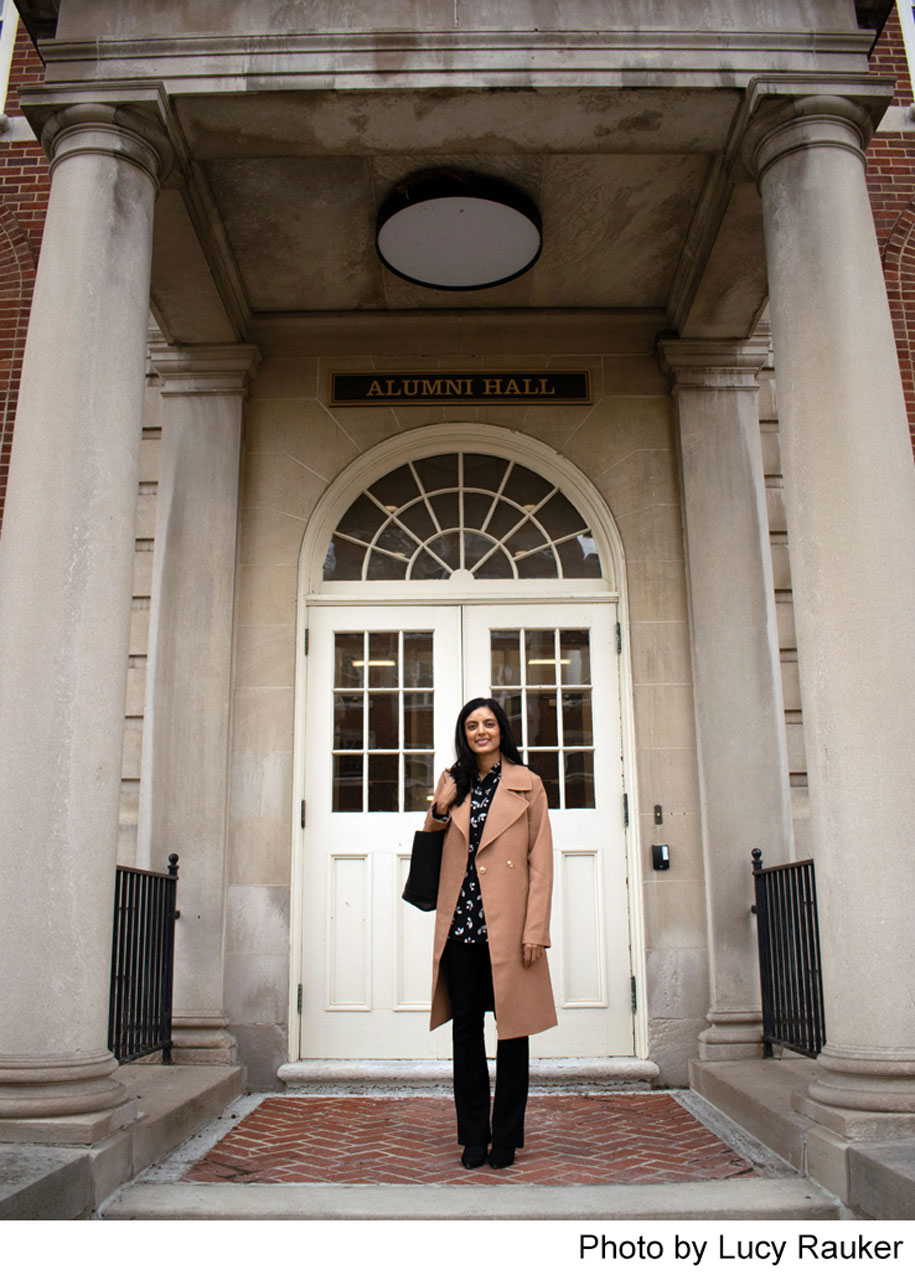
“Early in 2020, I had been actively monitoring the spread of the virus, but I never could have imagined the drastic impact the pandemic would have globally in the weeks to come. In the Center for International Programs we were focused on responding to the immediate needs of our students and that required us to be flexible and offer support to each other wherever possible. ‘All hands on deck’ was our mentality. I had been listening to the coronavirus news briefings each day and following travel announcements. Within a few days we witnessed travel stop across the globe. Inbound and outbound flights to many countries were canceled and there was limited mobility. It was a devastating situation for our international students who wanted to return home. My office oversees two residential communities, so our primary concern was ensuring safety and the well-being of the US and international students still on campus. Many of us were processing recent events differently and had varied individual circumstances. Yet, we all felt a responsibility and commitment to our students.”

“Early in 2020, I had been actively monitoring the spread of the virus, but I never could have imagined the drastic impact the pandemic would have globally in the weeks to come. In the Center for International Programs we were focused on responding to the immediate needs of our students and that required us to be flexible and offer support to each other wherever possible. ‘All hands on deck’ was our mentality. I had been listening to the coronavirus news briefings each day and following travel announcements. Within a few days we witnessed travel stop across the globe. Inbound and outbound flights to many countries were canceled and there was limited mobility. It was a devastating situation for our international students who wanted to return home. My office oversees two residential communities, so our primary concern was ensuring safety and the well-being of the US and international students still on campus. Many of us were processing recent events differently and had varied individual circumstances. Yet, we all felt a responsibility and commitment to our students.”
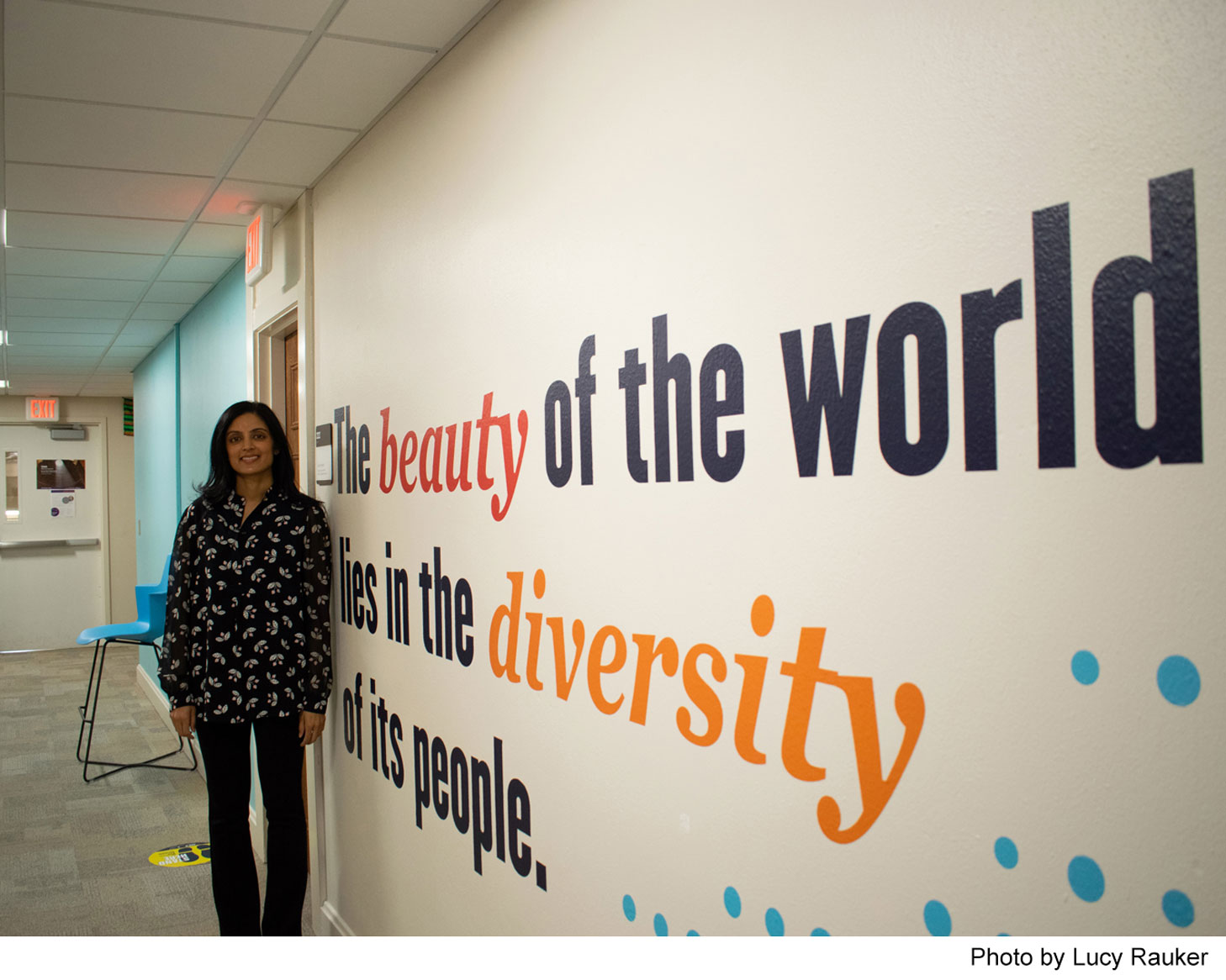
“As a product of immigrant parents, I have experienced the benefits of international education. My parents moved to this country from India in the 1960s to pursue higher education in the hopes of establishing a better life. I’ve witnessed their sacrifice and the emotional resilience and perseverance it takes to overcome obstacles. And through my upbringing I’ve learned about patience, navigating the unknown, adaptability, and remaining open to possibilities. Change can be a terrifying experience but it can also open up new opportunities to be creative and define your own path.”

“As a product of immigrant parents, I have experienced the benefits of international education. My parents moved to this country from India in the 1960s to pursue higher education in the hopes of establishing a better life. I’ve witnessed their sacrifice and the emotional resilience and perseverance it takes to overcome obstacles. And through my upbringing I’ve learned about patience, navigating the unknown, adaptability, and remaining open to possibilities. Change can be a terrifying experience but it can also open up new opportunities to be creative and define your own path.”
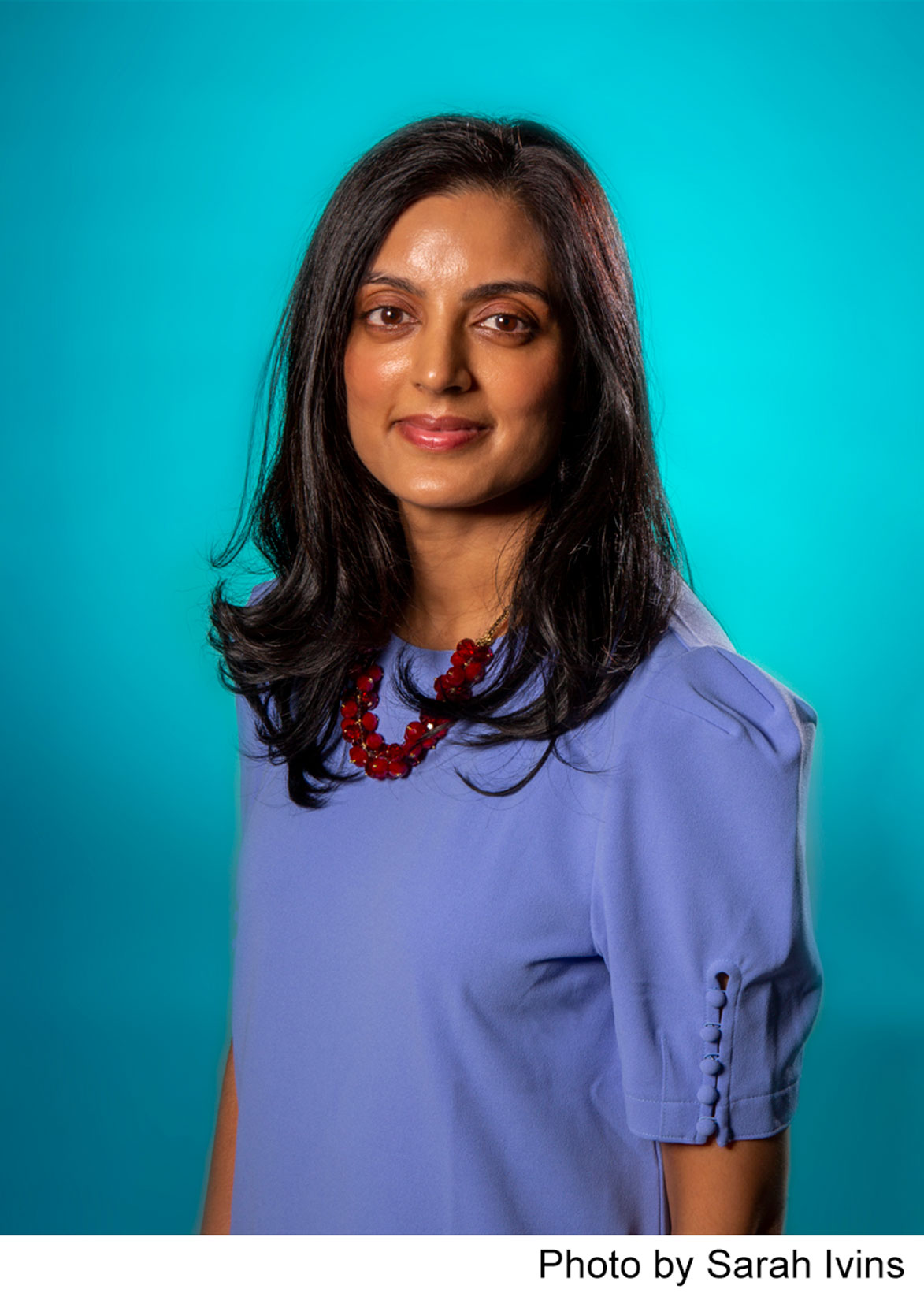
“Given limited mobility, this was particularly true for the work I do with faculty and students. I oversee a program called the Global Education Seminar. It is a strategic initiative where faculty have an opportunity to participate in a one-year study about a region unfamiliar to them and it culminates with a three-week immersive travel experience. The intent is to advance intercultural and global engagement by bringing new perspectives into our curriculum and establishing student and faculty collaborations. Last year we were focused on South Africa. Given all the uncertainty, there was no other option but to cancel the trip. With student and faculty mobility impacted, we had to explore new ways of advancing our intercultural and global engagement priorities. It was a period in which I had space to learn and connect with colleagues within the field both here, in the US and abroad. I could pursue new ideas while also revisiting past ones that we hadn’t further explored more. There are many aspects of this work that I found to be rewarding, despite all the unknowns. I felt interactions with colleagues were more meaningful, and there was a genuine intent to find ways to collaborate and adapt together.”

“Given limited mobility, this was particularly true for the work I do with faculty and students. I oversee a program called the Global Education Seminar. It is a strategic initiative where faculty have an opportunity to participate in a one-year study about a region unfamiliar to them and it culminates with a three-week immersive travel experience. The intent is to advance intercultural and global engagement by bringing new perspectives into our curriculum and establishing student and faculty collaborations. Last year we were focused on South Africa. Given all the uncertainty, there was no other option but to cancel the trip. With student and faculty mobility impacted, we had to explore new ways of advancing our intercultural and global engagement priorities. It was a period in which I had space to learn and connect with colleagues within the field both here, in the US and abroad. I could pursue new ideas while also revisiting past ones that we hadn’t further explored more. There are many aspects of this work that I found to be rewarding, despite all the unknowns. I felt interactions with colleagues were more meaningful, and there was a genuine intent to find ways to collaborate and adapt together.”
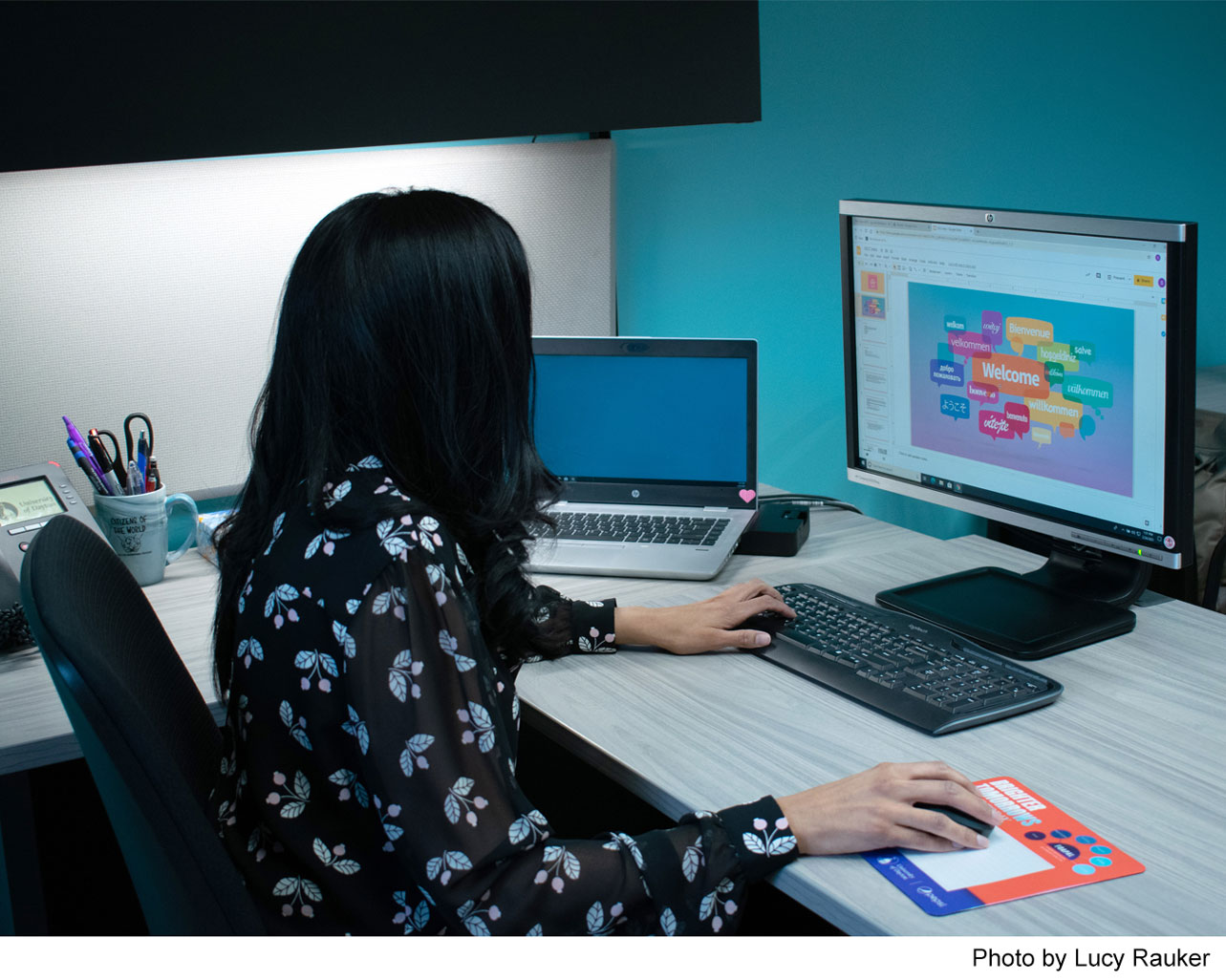
“Many international educators were turning to virtual exchange through Collaborative Online International Learning (COIL) and intercultural platforms as ways to advance learning in the classroom. So these are areas I pursued further and began exploring pilot opportunities at UD. As the summer progressed, we learned more about coping with the virus, and the campus infrastructure to support our students was stronger.”

“Many international educators were turning to virtual exchange through Collaborative Online International Learning (COIL) and intercultural platforms as ways to advance learning in the classroom. So these are areas I pursued further and began exploring pilot opportunities at UD. As the summer progressed, we learned more about coping with the virus, and the campus infrastructure to support our students was stronger.”
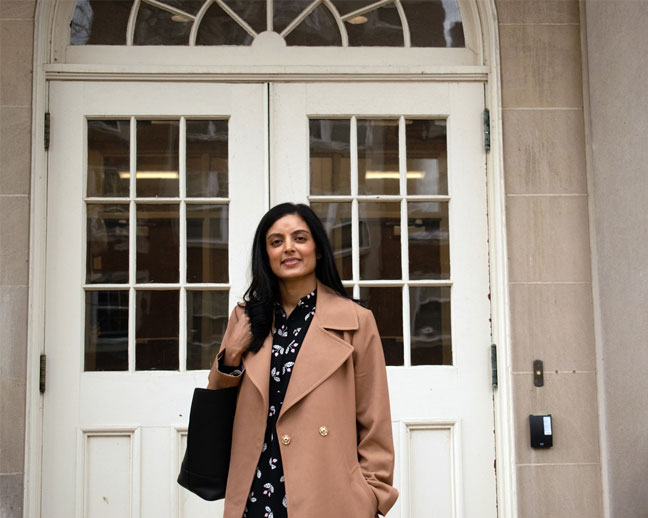
“However, the social and political climate was contributing to what was already a trying, intensive few months. I worked with colleagues to host a series of dialogues and workshops intended to explore some of the issues we are facing today. I had to enter these spaces delicately. I often think about how the pandemic has heightened our awareness of the inequity that exists in our world. And I like to think that eventually people can look back at this common experience and recognize the humanity in each other – even knowing we have each experienced this moment differently. I have been inspired to see the momentum around this work and the bravery of members in our community who are leading and engaging in difficult conversations. We’ve explored who we are in ways we could never imagine. I went through a dose of the process of self-exploration myself.”

“However, the social and political climate was contributing to what was already a trying, intensive few months. I worked with colleagues to host a series of dialogues and workshops intended to explore some of the issues we are facing today. I had to enter these spaces delicately. I often think about how the pandemic has heightened our awareness of the inequity that exists in our world. And I like to think that eventually people can look back at this common experience and recognize the humanity in each other – even knowing we have each experienced this moment differently. I have been inspired to see the momentum around this work and the bravery of members in our community who are leading and engaging in difficult conversations. We’ve explored who we are in ways we could never imagine. I went through a dose of the process of self-exploration myself.”
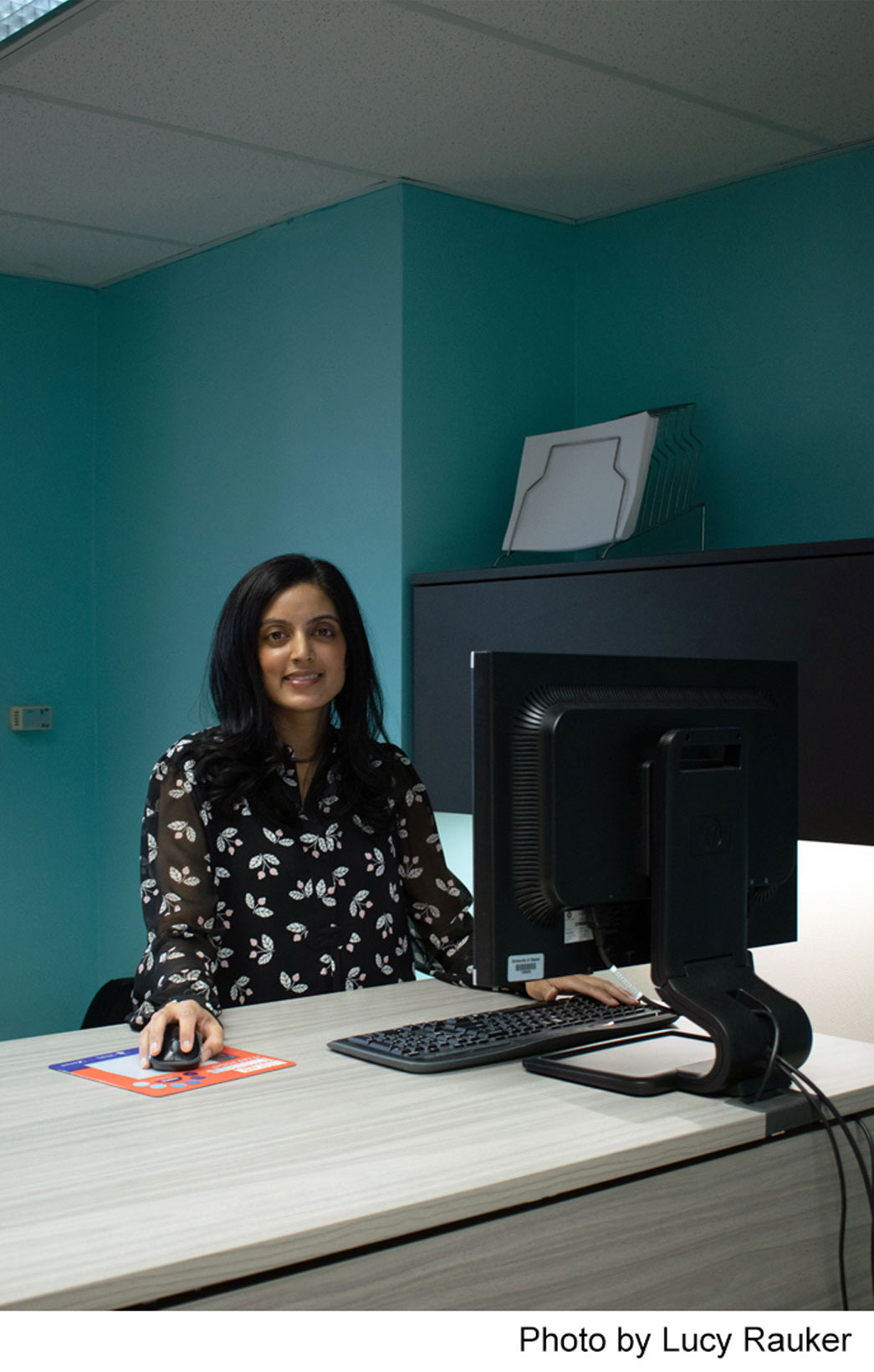
“Like many parents, I had a difficult time as we faced the start of the new school year. Our family struggled with decisions about childcare and schooling for our young children. ‘What is the safest option?’ ‘Where is risk worth taking?’ ‘How will this impact my children’s love for learning?’ All my core values were competing with each other. I considered home-schooling or taking a gap year because in-person and remote learning for my school-aged child was nowhere near ideal. I also encountered my first experience of loss due to COVID. This just perpetuated the fear that was already present. The media was highlighting the impact the pandemic had on working mothers and I found myself walking through a deep reflection around my identity as a working woman and mother. It was an internalized process, which led to mental fatigue and, oftentimes, rationalizing ways that I could do it all. Eventually, like many things, my husband and I chose to take a leap and relied on hope to get through the year. We are still navigating uncharted territory but I believe when we come out of the pandemic we will have gained a new perspective and become stronger. My ability to be resilient and adaptable was tested, as well as the strength of my character in the face of adversity. I have learned that circumstances can change at any moment, yet I remain optimistic as we are privileged to be in an environment where there are many possibilities to create meaningful impact.”

“Like many parents, I had a difficult time as we faced the start of the new school year. Our family struggled with decisions about childcare and schooling for our young children. ‘What is the safest option?’ ‘Where is risk worth taking?’ ‘How will this impact my children’s love for learning?’ All my core values were competing with each other. I considered home-schooling or taking a gap year because in-person and remote learning for my school-aged child was nowhere near ideal. I also encountered my first experience of loss due to COVID. This just perpetuated the fear that was already present. The media was highlighting the impact the pandemic had on working mothers and I found myself walking through a deep reflection around my identity as a working woman and mother. It was an internalized process, which led to mental fatigue and, oftentimes, rationalizing ways that I could do it all. Eventually, like many things, my husband and I chose to take a leap and relied on hope to get through the year. We are still navigating uncharted territory but I believe when we come out of the pandemic we will have gained a new perspective and become stronger. My ability to be resilient and adaptable was tested, as well as the strength of my character in the face of adversity. I have learned that circumstances can change at any moment, yet I remain optimistic as we are privileged to be in an environment where there are many possibilities to create meaningful impact.”
